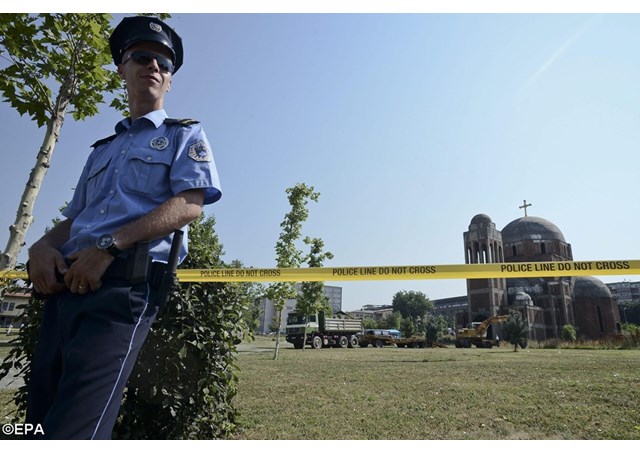
Kosovo ratifies Montenegro border deal despite opposition

(Vatican Radio) Kosovo's government has ratified a crucial border demarcation agreement with neighboring Montenegro, aimed at further stabilizing the often volatile Balkans, despite disapproval from the opposition, as part of wider efforts by the young nation to join the European Union.
Listen to Stefan Bos' report:
The embattled government ratified the deal with neighboring Montenegro following years of preparations. On Thursday it sent the details to Parliament to proceed with its approval, despite strong disagreements with the opposition.
A day earlier the government had a meeting with the opposition about the border agreement that resulted in no compromise. Several legislators have made clear they will not change their mind.
Since last autumn the noisy opposition has often used tear gas canisters to disrupt parliament's work. Angry men walk towards the platform to ensure that nobody of the government can address Parliament. Smoke soon fills the room, forcing parliamentarians to leave the area.
Outside, opposition supporters' street rallies routinely turn into violent clashes with police. On Thursday some scores of opposition protesters were seen outside the Parliament building.
Opposition defends actions
The opposition has defended its actions saying the Kosovo government is giving away territory to Montenegro.
They claim that the border with Montenegro was set by the 1974 constitution of what was Yugoslavia before the federation broke up during the bloody Balkan wars of the 1990s.
The opposition maintains the government in Pristina "has shifted the 1974 border to Montenegro's advantage."
The United States disagrees saying its review of maps shows the deal "closely aligns" with the border defined by what was Yugoslavia's Constitution.
Angry at Serbia
Opposition legislators are also furious about an agreement with Serbia giving more powers to Kosovo's minority ethnic Serbs.
Yet the agreements are seen as crucial to the ambitions of Kosovo, Serbia and others in the region to join the European Union.
Kosovo declared independence from Serbia in 2008, almost a decade after air strikes by the NATO military alliance drove out Serbian security forces. They were accused of killing and expelling ethnic Albanian civilians during Kosovo's war for independence in 1990s.
Kosovo has been recognized as an independent state by more than 100 nations. However its independence is rejected by Serbia, with support from Russia, which has blocked Kosovo from becoming a United Nations member.
| All the contents on this site are copyrighted ©. |


